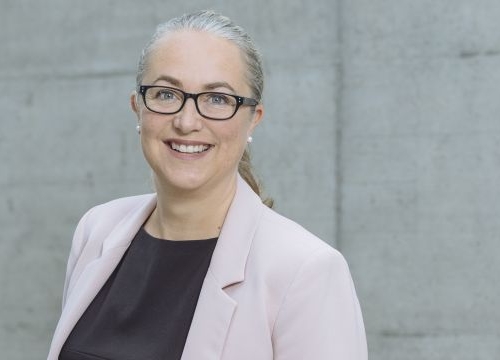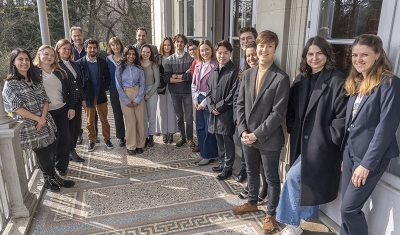Opening Lecture – Respect for International Humanitarian Law in the 21st Century: Utopian Dream or Pragmatic Reality?
Event


ICRC
In this opening lecture of the 2021–2022 academic year, Dr Helen Durham, Director of International Law and Policy at the International Committee of the Red Cross (ICRC), will address the legal, operational and political imperative of the international community continuing to work towards the application and implementation of international humanitarian law (IHL).
Building on a range of current themes that an institution such as the ICRC needs to grapple with – from the use of new technologies in warfare to issues such as climate challenges, global responses to pandemics and increasing instances of urban warfare – the session will focus around the relevance and long-standing nature of key principles of IHL. Dr Durham’s own experience from being a field delegate to a Director within the ICRC will add a personal dimension to this presentation.
About Dr Helen Durham
Dr Helen Durham is Director of International Law and Policy at the ICRC headquarters in Geneva. In her role, she oversees a large global network of international lawyers, policy advisers, armed forces delegates, weapons specialists, sociologists, diplomats, researchers and academic experts who work towards the respect of IHL.
Dr Durham regularly represents ICRC at venues such as the United Nations (UN) Security Council and in bilateral engagements with ministers, senior government officials and military decision-makers. In the last few years, she has led a range of IHL multilateral negotiations in Geneva and travelled widely to engage with authorities on matters relating to the protection of civilians during times of armed conflict and other situations of violence.
Admitted as a Barrister and Solicitor of the Supreme Court of Victoria and High Court of Australia, she has an Arts and Law degree with honours (Melbourne University) and a PhD (Melbourne University with research at New York) in international law, with a focus on IHL and international criminal law.
Dr Durham has widely published on IHL topics, in particular those relating to women and armed conflict. Previously she has been a legal adviser for ICRC in the Pacific Region, Head of Office for ICRC in Australia and held a range of roles in the Australian Red Cross.
She also held the post of Director of Research for the Asia Pacific Centre for Military Law at Melbourne Law School where she also lectured in international law in the Master's Programme. Dr Durham has been inducted into the Victorian Honour Roll of Women (2014), was awarded an Australian Centenary Peacewoman (2015) and has been appointed as an Officer of the Order of Australia (2017).
Attendance
This event is reserved for our incoming students.









